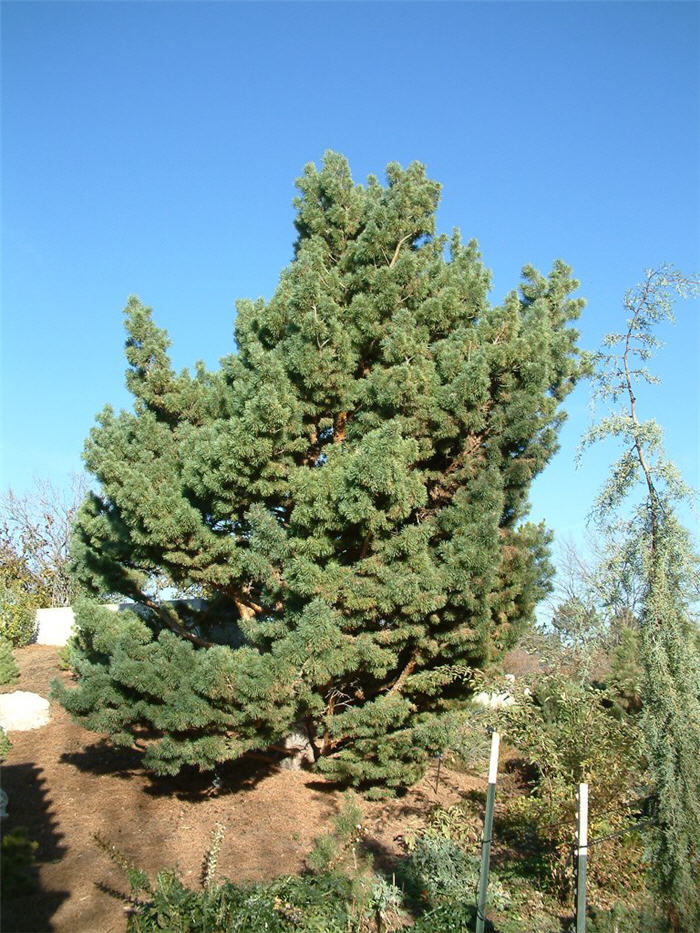| Botanical Name: Pinus sylvestris 'Glauca Compacta' | |
| Common Name: Scotch Pine |

-
Anatomy
-
Culture
-
Design
Plant Type
Tree, Conifer
Height Range
25-40', 40-60'
Flower Color
n/a
Flower Season
n/a
Leaf Color
Green, Blue Green, Grey Green, Light Green, Yellow Green
Bark Color
Red
Fruit Color
Black, Brown
Fruit Season
Winter, Fall
Sun
Full
Water
Medium
Growth Rate
Moderate
Soil Type
Sandy, Clay, Loam, Rocky, Unparticular
Soil Condition
Average, Rich, Poor, Well-drained, Moist, Dry
Soil pH
Acid, Neutral
Adverse Factors
n/a
Design Styles
Japanese, Mediterranean, Ranch, Seascape, Spanish
Accenting Features
Silhouette
Seasonal Interest
n/a
Location Uses
Background, Park, Roadside, With Rocks
Special Uses
Screen, Mass Planting, Wind Break
Attracts Wildlife
n/a
Information by:
Photographer:
Photographer:
-
Description
-
Notes
Some features of the Pinus sylvestris include its stout, twisted needles and egg-shaped cones. Its trunk is often straight; the bark, which peels in irregular plates, is a purple gray color which changes to orange and flaking toward the top. Positive growth will result from planting in acidic, well-drained soil. It is best to destroy severely beetle-ridden trees. Pines are highly combustible plants.
Grow in full sun and well-drained soil; though it prefers laomy, acidic soil it is tolerant of poorer, drier soils. Strong wind resistance.